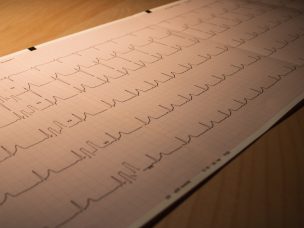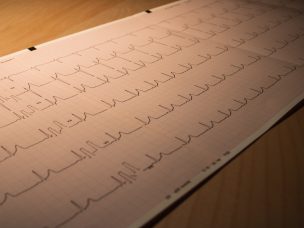Cardiology
Effects of Menopausal Symptoms on Coronary Heart Disease Risk
Medically reviewed by Dr. Kimberly Langdon Cull, M.D. on July 25, 2023 Insomnia increases the risk of coronary heart disease. Moreover, insomnia at different ages has a different effect on coronary heart disease risk among menopausal women. The menopausal transition is associated with a myriad of vasomotor and non-vasomotor symptoms. Postmenopausal women also exhibit an...
Prevalence and Treatment of Arrhythmias in Cardiac Amyloidosis Patients
There is a high prevalence of arrhythmias in cardiac amyloidosis patients, with implantable devices and catheter ablation showing partial effectiveness in their treatment. The deposition of abnormal protein fibrils in cardiac amyloidosis can cause heart failure associated with diastolic dysfunction and arrhythmias. Various types of arrhythmias are observed in cardiac amyloidosis patients. However, the prevalence...
A-Fib Linked to Increased Odds of MCI, Dementia in Women
Women with atrial fibrillation and normal baseline cognition had higher risk of disease progression from normal to MCI, MCI to dementia Atrial fibrillation (AF) is associated with increased odds of and with more rapid progression to mild cognitive impairment (MCI) and dementia among women versus men, according to a study published online June 23 in Alzheimer’s...
Association Between Vasomotor Symptom Frequency and Weight Gain
An increase in vasomotor symptoms, persistent vasomotor symptoms, and a high frequency of vasomotor symptoms may be associated with weight gain among women. The presence of vasomotor and other symptoms during menopause is associated with weight changes in women. Additionally, vasomotor symptoms may impair quality of life, cause sleep disturbances, and hinder memory and concentration. ...
Safety of Fezolinetant for Vasomotor Symptoms in Menopause
Fezolinetant is a non-hormonal treatment modality that is safe and effective over 52 weeks for treating moderate-to-severe vasomotor symptoms in menopausal women. Menopausal hormone therapy effectively manages vasomotor symptoms in some individuals, but not all women are candidates for hormonal therapy. Fezolinetant is a non-hormonal neurokinin 3 receptor antagonist that works by moderating activity in...
Smartphone-Based Cardiometabolic Risk Reduction in Black Women
Smart Walk, a culturally tailored smartphone-delivered physical activity intervention for obese Black women, demonstrates high feasibility and promising results regarding cardiometabolic risk reduction. Regular aerobic physical activity (PA) reduces the risk of cardiovascular disease and type-2 diabetes. Research shows culturally tailored interventions for African American (AA) women increase PA. A pilot study in the International...
Change in Birthweight Across Pregnancies Tied to Cardiovascular Mortality
Women with a normal weight first child and small second infant have increased risk of cardiovascular mortality. Changes in offspring birthweight quartiles from first to second pregnancy could inform women’s future risk of cardiovascular disease (CVD) death, according to a study published online May 30 in the American Journal of Epidemiology. Yeneabeba Tilahun Sima, Ph.D.,...
Role of Resistance Training for Postmenopausal Women Experiencing Vasomotor Symptoms
Resistance training 3 days per week for 15 weeks increased health-related quality of life in postmenopausal women with moderate-to-severe vasomotor symptoms. Menopausal symptoms can significantly impact quality of life. The two primary vasomotor symptoms (VMS), hot flushes and night sweats, are experienced by 75% of women around menopause. Effective pharmaceutical treatments are available, but they...
Dietary Management of Menopausal Vasomotor Symptoms
A change to a plant-based diet that included limiting oils and daily soybean consumption significantly reduced the frequency and intensity of postmenopausal hot flashes and related symptoms. Postmenopausal vasomotor symptoms impair quality of life, create recurring discomfort, and interfere with sleep. According to the Women’s Health Initiative (WHI), increasing whole grains, fruits, and vegetables while...
More Medical News














